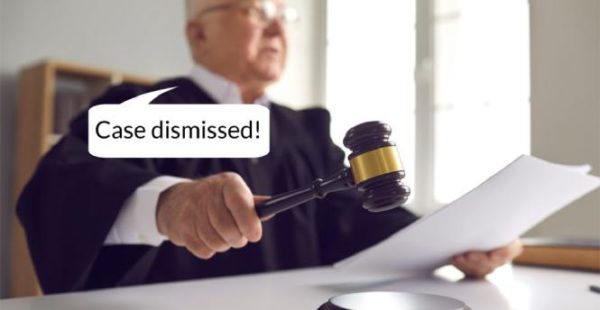Dismissing Evidence in a Criminal Case
Dismissing evidence in a criminal case in California involves several legal strategies and must adhere to specific rules and procedures. This is done through a Motion to Suppress Evidence as stated in Penal Code 1538.5.
Suppression of evidence is a pretrial process aimed at preventing certain evidence from being presented at trial, which can be based on either lawful or unlawful grounds.
Lawful suppression of evidence occurs when a judge decides to exclude the evidence from the court proceedings because it may be inadmissible due to constitutional violations or other legal statutes that justify its exclusion. For example, if the evidence was obtained in a way that violates a defendant’s constitutional rights, it can be lawfully suppressed. Typically, a criminal defendant raises a suppression request through a pretrial motion. The judge, who alone determines the admissibility of evidence, handles this preliminary question. If the judge rules that the evidence should be suppressed, it will not be presented during the trial. The jury, which is responsible for evaluating the credibility of evidence, does not play a role in the suppression decision.
The 4th Amendment and the Exclusionary Rule
The 4th Amendment of the United States Constitution prohibits unreasonable searches and seizures, generally requiring law enforcement officers to have a warrant or probable cause to search an individual, their home, or vehicle. “Probable cause” is a flexible term defined by case law and the specific circumstances of each case.
The exclusionary rule, derived from the 4th Amendment, prevents evidence obtained illegally from being used in court. A motion to suppress is a request for the court to discount such evidence based on violating the defendant’s rights.
A Reasonable Expectation of Privacy
For the 4th Amendment and the exclusionary statute to work, the search or seizure must occur where the individual has a reasonable expectation of privacy. Typically, this includes places like a car, locker, cell phone, home, purse, or bag. However, there is generally no reasonable expectation of privacy for items discarded or in public spaces like parks, shopping malls, or public vehicles.
Motion to Suppress
A motion to suppress is a legal appeal to reject certain evidence from a criminal trial due to unreasonable searches and constitutional rights violations, as outlined in Penal Code 1538.5 PC.
Evidence Obtained in Warrantless Searches:
Searches without a warrant are presumed unreasonable. A motion can be filed to suppress evidence obtained from such searches. The state must prove the search was reasonable.
Evidence Obtained in Warranted Searches:
Search warrants require probable cause and are reviewed by a judge. However, police must adhere to the warrant’s specific terms and constitutional procedures. A motion to suppress can target evidence obtained in a warranted search if:
- The evidence was outside the warrant’s scope.
- The property was not described in the warrant.
- The warrant lacked probable cause.
- The search violated constitutional standards.
- The warrant was insufficient on its face.
Searches with a valid warrant are presumed reasonable, but the defendant must prove any unreasonableness.
Evidence Subject to Exclusion
Under the exclusionary rule, any evidence tainted by rights violations can be excluded. This includes evidence from an illegal search, known as the “fruit of the poisonous tree.” If the initial search was unreasonable, any related evidence can also be targeted for exclusion.
Filing a Motion to Suppress
A motion to suppress is usually filed early in a criminal case, potentially as soon as the pretrial arraignment hearing. The motion can be argued during pretrial or dedicated suppression hearings.
Pretrial Hearing:
The attorney can argue the motion during a pretrial hearing, but only concerning evidence the prosecution will likely present at that hearing.
The attorney may argue the motion later if multiple pieces of evidence are involved.
If the motion is denied during the pretrial hearing, it can be refiled for a dedicated suppression hearing, limited to the initial hearing’s transcript and any new evidence.
Suppression Hearing
A dedicated suppression hearing is like a mini-trial on whether evidence should be excluded.
The judge will consider arguments, testimony, and evidence from both sides, including cross-examinations of witnesses and police.
Impact on the Case
Suppressing evidence can significantly affect the outcome of a criminal case. If crucial evidence is excluded, prosecutors might be incapable of proving their case beyond a reasonable doubt, potentially resulting in charges being dismissed or an acquittal at trial. Conversely, if the evidence is not suppressed, it can be used against the defendant at trial to secure a conviction.
A successful motion to suppress prevents specific evidence from being used in the criminal case but does not remove the evidence entirely. It may still be used in other legal proceedings.


